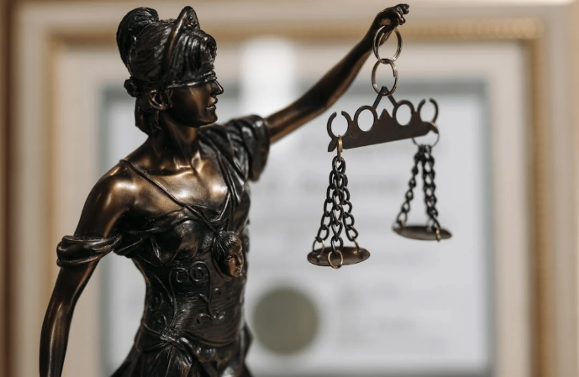
In 2023, roughly 59.2 million adults in the U.S. sought mental health treatment. These individuals often reveal personal struggles and sensitive life details during therapy. They expect privacy, and for the most part, they get it. But in legal disputes—such as divorce, custody cases, or lawsuits involving emotional distress—therapy records can become part of the evidence.
This creates a serious concern. Lawyers may want access to these records to support their client’s case. At the same time, the client—or the opposing party—may feel exposed or violated. Courts must strike a balance between privacy and fairness.
Knowing the rules can help lawyers avoid serious mistakes. It can also protect clients from unnecessary harm.
Therapy records show up most often in family law, criminal cases, and civil lawsuits. In a custody dispute, one parent might request the other’s mental health records to argue that they’re unfit to care for a child. In a personal injury case, someone claiming emotional distress may be asked to show proof of therapy sessions or diagnoses.
In criminal trials, defense attorneys sometimes seek these records to challenge a witness’s credibility or establish mental health conditions. On the other hand, prosecutors may use them to argue a pattern of behavior. These requests aren’t automatic—they usually require a judge’s approval.
Most therapists are careful when dealing with legal requests. If they get a subpoena, they don’t hand over records right away. Instead, they usually consult with the client, speak to a lawyer, and decide what to do next. Many will also try to limit disclosure or ask the court to clarify what’s needed.
Therapists with an LPC degree often receive training on how to handle legal challenges. They’re taught to prioritize confidentiality while following the law. Still, many prefer not to be involved in court cases unless absolutely necessary. Lawyers should respect that and work with therapists, not against them.
People assume therapy records are always private. That’s true to a point. Federal law, especially HIPAA, protects personal health information. Therapists can’t just hand over notes or treatment history to anyone who asks.
State laws often add another layer of protection. In most places, therapists are required to keep records confidential unless the client gives written consent or a judge issues a valid order. Even then, only relevant portions of the records may be disclosed. It’s also important to note that some types of therapy—like couples or group sessions—may have special rules about what can be shared and with whom.
Lawyers often confuse subpoenas with court orders, but they are not the same. A subpoena is a legal request to produce documents or appear in court. A therapist can object to it, especially if it violates privacy rules. In most cases, the therapist will contact the client and may ask a judge to block the request.
A court order, on the other hand, is issued by a judge and must be followed. But even then, the therapist may only be required to release certain records, not everything. If the order is too broad, a lawyer can request to limit it. Understanding this difference helps lawyers act quickly and protect both their case and their clients.
Lawyers may feel tempted to request therapy records early in a case. But this move can backfire. Many therapy notes aren’t meant for legal review. They may be vague, incomplete, or not helpful to the issue at hand. Some may even harm the client’s case, especially if they include comments taken out of context.
If the goal is to show emotional harm, billing statements or treatment summaries might work better than full session notes. Full records can include things like personal opinions, family history, or comments that don’t belong in a courtroom. Lawyers should pause and ask: Do I need these records, or is there another way to prove my point?
Therapists can be called to testify, but that doesn’t mean they’re comfortable with it. Most mental health professionals, including those with a Licensed Professional Counselor degree, are trained to support clients, not to act as witnesses. They may resist taking a side, especially in emotionally charged cases.
Even when testifying, a counselor may avoid sharing direct quotes or sensitive opinions unless forced. They often prefer to provide broad observations or summaries. Lawyers should keep their questions focused and avoid pushing for more than the therapist can legally or ethically say. Forcing a therapist to testify beyond their role may lead to frustration—or to objections that slow down the case.
Courts understand that therapy records are private. If you must use them, ask the judge to limit how they’re used. You can request that only certain parts be reviewed. You can also ask the court to seal those records so they don’t become part of the public file.
This protects your client’s dignity and prevents future harm. It also shows respect for the counseling process. Judges are more likely to agree when the request is clear and shows a real concern for privacy.
Lawyers and therapists both work under strict ethical standards. Even if the law allows something, it doesn’t mean it’s always right. Think about how your decisions affect the people involved. Don’t use therapy records as a way to shame or attack someone. Stick to what’s relevant.
Therapists have their own boundaries. They may not answer some questions, even with a court order, if it crosses a line. Respect that. Building trust with mental health professionals will help you get the information you need while keeping the case fair.
Therapy records can be helpful in court, but they’re not just documents. They reflect someone’s most private thoughts. Using them the wrong way can damage trust, hurt your client, or lead to unnecessary conflict. Good lawyers know when to ask for these records—and when to hold back.
Make sure your approach is thoughtful and respectful. Know the laws, understand the limits, and protect your client’s rights at every step. That’s how you win with integrity—and do right by the people you serve.